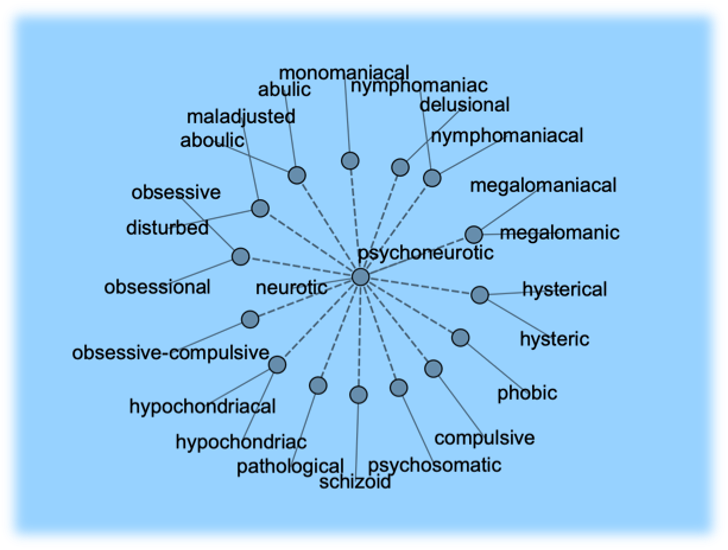
How hunger feeds success
Who wants to be neurotic?
Anxious, worried, moody, tense – a kind of human Donald Duck (or real-world George Costanza). The modern term for this personality trait is emotional stability. You definitely want to be at the positive end of this spectrum: emotional stability is associated with resilience, better relationships, self-acceptance, and happiness.
Bummer. I’m in the wrong cohort – anyone who knows me well will attest that I worry good times won’t last, am self-critical to a fault and can be easily thrown when bad shit comes down. People like me come across as intense, a little dark and (at our worse) whiny.
On the other hand.
While talent is a key to success, on the flip side it unlocks the door to a pretty crowded room. You may have graduated summa cum laude from Backofbeyond University, but when you turn up in New York or London or Tokyo you discover just how many really clever people there are in the world.
In a high talent environment being emotionally unstable can paradoxically foster a terrific drive to achieve. People like me often have the feeling that they have something to prove, especially if you grew up lower down the life-ladder.
When my son was born in 1993, I was puddling along in business, doing ok. I wasn’t failing, but I didn’t feel like I was succeeding terribly much. I often felt that I didn’t quite measure up.
All of a sudden having to provide for a family – woah! Something kicked in. The pressure I put on myself to be a good provider was at once irrational and very powerful. It was deeply tied in with feeling that I had to prove myself as a man – be the breadwinner, keep my wife and child safe, be stable – measure up!
This feeling drove me to take some bigger risks, be more ambitious and ultimately grow Winsborough into the largest organisational psychology firm in New Zealand.
Being driven to do better, prove yourself in the eyes of others and get out of trouble can be formidable. Freud thought that “a certain amount of neurosis is of inestimable value . . .” as a motivator. Certainly research shows that neurotic people can be more combative and competitive. They may even manage greater academic success than the emotionally balanced and self-satisfied.
I, on the other hand, still worry. The difference is that I’ve learned to be grateful for it. If we understand anxiety as a source of motivation and energy then we can harness it for positive ends. Learning to accept the person that you are and working with yourself – flaws and all – is the secret to a better life.
Winsborough works with organisations to help all their people to be better leaders.
Hallelujah !!!! I feel better already!
Partner at Winsborough Limited
1yDave Winsborough, I add that the energy and drive that emerges as a consequence is often inspiring!
Leadership Coach for Engineers, Techs and Professionals
1yWe all are to some extent
Communicate for impact and trust
1yI love your work and your honesty Dave Winsborough
Leadership Development Principal. Optimising individual, team and organisational performance.
1yJust this morning I was discussing with a leadership team how we need both the worriers and those who happily declare 'she'll be right', in order to be both attuned to the threats on the horizon and to give confidence that those threats can be weathered. I know, from being at the other end to you, how valuable it is that you rattle the cage and ensure we don't just muddle along in our complacency...